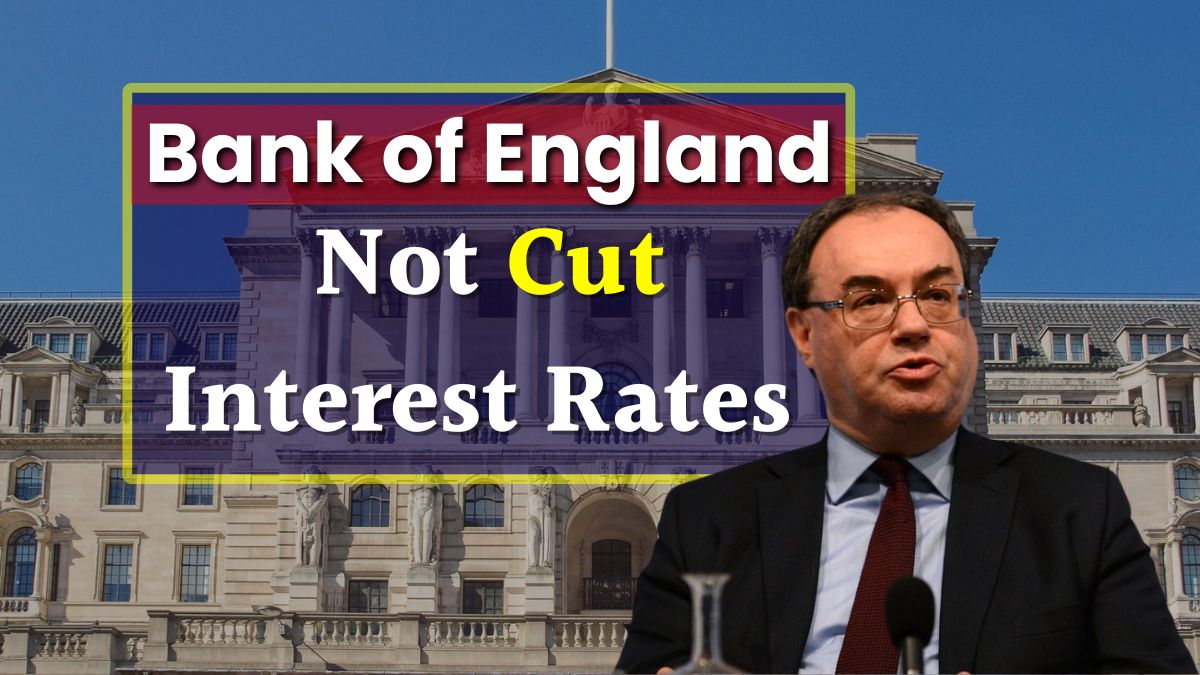Struggling to make sense of rising prices, slow job growth, and what it all means for your wallet? You’re not alone. With the cost of living still high and jobs harder to come by, many people are desperately hoping for interest rate cuts. But here’s the tough truth—the Bank of England (BoE) might not ease up just yet.
Let’s talk about why that is, what it means for everyday people like us, and what could come next.
Why Is the Bank of England Holding Back on Rate Cuts?
You’d think with unemployment rising and wage growth slowing down, interest rates would drop, right?
Not so fast. The BoE is walking a tightrope. They know people are hurting, but they’re also worried about inflation creeping back in if they act too soon. And right now, inflation—especially in services like transportation, health, and hospitality—is still too high for their comfort.
Here’s what the Bank is balancing:
- Unemployment is up, but not enough to trigger a rate cut.
- Wage growth is slowing, but prices in services are still rising.
- Economic growth is weak, but the BoE fears cutting rates could push inflation higher again.
So even though the economy looks fragile, the Bank believes it’s not the right time to ease policy.
What’s Behind the Bank’s Cautious Stance?
The BoE’s top priority right now? Controlling inflation.
They’ve made progress bringing it down. And they don’t want to risk undoing that work by cutting rates too soon. Some experts even say that rate cuts might not help the kind of deep-rooted issues the UK economy is facing anyway.
That includes:
- Structural job market changes
- Persistent price pressures in key sectors
- Consumer uncertainty that no interest rate change can fix overnight
Simply put, the BoE thinks a rate cut right now might do more harm than good.
Markets and Critics Aren’t Happy—And That’s Creating Tension
Plenty of people disagree with the BoE’s decision to wait.
Some economists believe the Bank is being “too cautious”—ignoring signs of trouble in the economy and holding back when urgent action is needed.
Others are worried that delaying cuts could make things worse, especially for low-income families and small businesses that are already struggling to keep up with borrowing costs.
And then there’s the market.
Investors have been betting on rate cuts, so if the BoE holds steady, it might catch them off guard. That could shake things up:
- The pound might actually strengthen if rates stay high.
- Bond yields (like on UK gilts) could rise if markets rethink future rate expectations.
So it’s not just about policy—it’s about managing expectations too.
What Happens Next?
Even if rates don’t change this time, the vote inside the Bank will be telling.
If it’s a close call, it shows deep internal disagreement—and that could hint that rate cuts are coming sooner than we think. But if most members vote to hold steady, it signals they’re still playing it safe.
Either way, what really matters is the forward guidance the Bank gives. In simple terms: What do they say they’ll do next, and under what conditions?
If they signal that cuts are possible soon, that might give some hope to struggling households. If they stay vague, uncertainty will continue—and that’s never good for families trying to plan their futures.
What This Means for You
You might be wondering: “How does this affect me directly?”
Here’s the reality:
- If you’re paying off debt, high rates mean it’s still expensive.
- If you’re trying to buy a home, mortgages aren’t getting cheaper yet.
- If you’re running a small business, you might feel stuck between costs and cautious customers.
It’s frustrating, especially if you’re just trying to make ends meet. And it’s okay to feel a bit helpless when big decisions like this are out of your control.
But knowing what’s happening—and why—can help you plan smarter, ask better questions, and push for the support your community needs.
FAQs
1. Why isn’t the Bank of England cutting interest rates even though the economy is weak?
Because they’re still worried about inflation, especially in services. They think cutting rates too early could make things worse.
2. How does this affect me if I have a loan or mortgage?
High interest rates mean you’ll keep paying more on monthly repayments. A hold decision won’t bring immediate relief.



